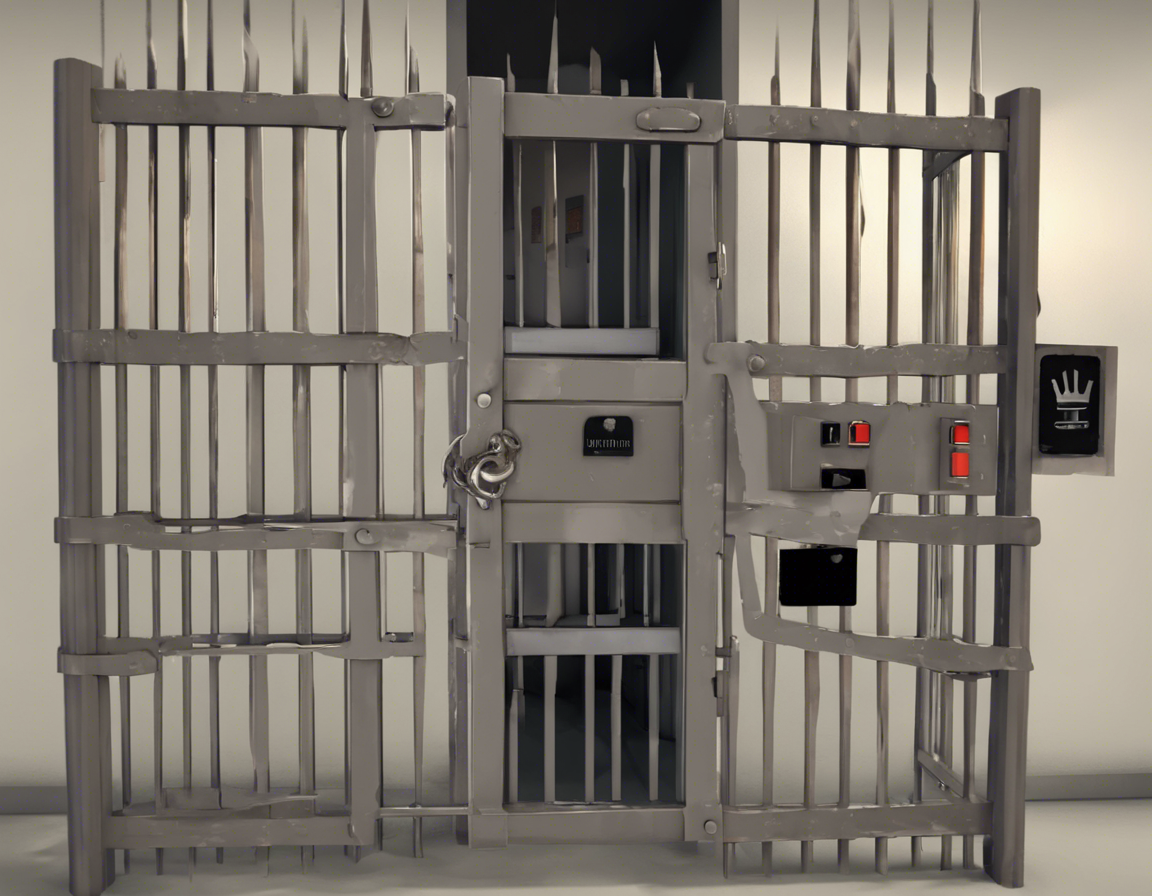Introduction
In a groundbreaking social experiment, a group of researchers conducted a study known as the Unlocked Jail Experiment to delve into the psychological and behavioral effects of incarceration on individuals. This study, conducted over several months, aimed to shed light on the impact of freedom, or the lack thereof, on inmates and how it influences their mindset, behavior, and rehabilitation prospects. The findings of this experiment challenged conventional beliefs about the penal system and raised significant questions about the effectiveness of incarceration as a means of rehabilitation and crime prevention.
The Concept of Unlocked Jail Experiment
The Unlocked Jail Experiment involved creating a simulated prison environment where inmates were granted unprecedented levels of freedom. Unlike traditional penitentiaries, where strict rules and regulations govern every aspect of an inmate’s life, the participants in this experiment had the flexibility to move around the facility, access communal spaces, and interact with fellow inmates and staff members without constant supervision or restrictions. This unique approach aimed to test the hypothesis that empowerment and trust could lead to positive outcomes and behavioral changes among prisoners.
Findings and Insights
The results of the Unlocked Jail Experiment were both surprising and thought-provoking. Contrary to common belief, the participants did not abuse their newfound freedom or engage in disruptive behavior. Instead, they exhibited a sense of responsibility and self-discipline, forming meaningful relationships with their peers and demonstrating a willingness to participate in educational and rehabilitative programs. The researchers observed a marked improvement in the inmates’ mental well-being, social skills, and overall attitude towards incarceration.
Key Learnings
The Unlocked Jail Experiment offered several key learnings that challenge the traditional prison system’s approach to rehabilitation and punishment. By prioritizing trust, autonomy, and support, the researchers demonstrated that inmates are capable of positive change when provided with the necessary tools and opportunities. This approach highlights the importance of viewing prisoners as individuals with inherent potential for growth and transformation, rather than simply as criminals to be punished and controlled.
Implications for the Criminal Justice System
The findings of the Unlocked Jail Experiment have significant implications for the criminal justice system. By advocating for a more compassionate and rehabilitative approach to incarceration, policymakers and law enforcement officials can strive to create environments that foster personal growth, accountability, and successful reintegration into society. Embracing concepts such as restorative justice, community-based programs, and mental health support can lead to more effective outcomes and reduced recidivism rates among former inmates.
Challenges and Criticisms
Despite its promising results, the Unlocked Jail Experiment has faced criticism and skepticism from some quarters. Critics argue that the study’s controlled environment and limited duration may not accurately reflect the complexities and challenges of real-world prisons. Additionally, concerns have been raised about the potential for abuse and exploitation in a system that grants inmates significant freedom without adequate safeguards in place. Addressing these challenges requires careful planning, ongoing evaluation, and collaboration with experts in the fields of criminology, psychology, and social work.
Conclusion
In conclusion, the Unlocked Jail Experiment represents a bold and innovative approach to understanding the impact of freedom within the confines of a prison setting. By challenging traditional notions of incarceration and rehabilitation, this study provides valuable insights into the human capacity for change, growth, and redemption. Moving forward, it is essential for policymakers, scholars, and advocates to consider the lessons learned from this experiment and explore new ways to create a more humane, effective, and just criminal justice system.
Frequently Asked Questions (FAQs)
- Was the Unlocked Jail Experiment conducted in a real prison?
-
No, the experiment took place in a simulated prison environment created by researchers for the purpose of the study.
-
Did the participants in the experiment face any consequences for their actions?
-
The participants were monitored closely by the researchers, and any disruptive behavior would have led to the termination of the experiment.
-
How long did the Unlocked Jail Experiment last?
-
The duration of the experiment varied, with some participants involved for several weeks and others for a few months.
-
What were some of the main findings of the Unlocked Jail Experiment?
-
The participants in the experiment demonstrated positive behavioral changes, improved mental well-being, and a willingness to engage in rehabilitative programs.
-
What are the implications of this experiment for the criminal justice system?
-
The experiment highlights the potential benefits of a more humane, rehabilitative approach to incarceration that focuses on trust, empowerment, and support for inmates.
-
Were there any ethical concerns raised about the Unlocked Jail Experiment?
-
Some critics raised ethical concerns about the study’s methodology, potential risks to participants, and the generalizability of the findings to real-world prison settings.
-
How can the lessons from this experiment be applied to real prisons?
-
Policymakers and prison officials can consider adopting some of the principles of the Unlocked Jail Experiment, such as trust, autonomy, and rehabilitation, to improve outcomes for inmates.
-
What role did mental health support play in the Unlocked Jail Experiment?
-
Mental health support was a crucial component of the experiment, helping participants cope with the psychological challenges of incarceration and facilitating their rehabilitation process.
-
Did the participants in the Unlocked Jail Experiment have access to educational programs?
-
Yes, the participants were offered access to educational programs as part of the experiment, allowing them to engage in learning opportunities and skill development.
-
How can the public support reforms to the criminal justice system based on the findings of this experiment?
- By advocating for policies that prioritize rehabilitation, reintegration, and support for individuals in the justice system, the public can contribute to more humane and effective approaches to crime prevention and rehabilitation.
